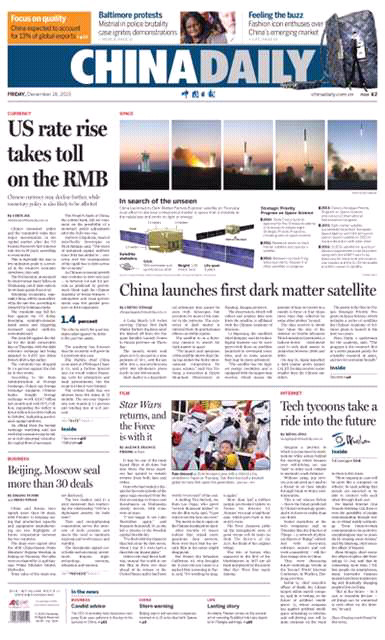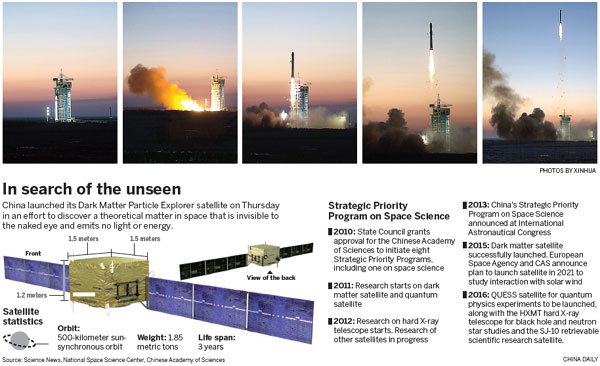【China Daily】China launches first dark matter satellite

A Long March 2-D rocket carrying China's first Dark Matter Particle Explorer satellite blasted off from the Jiuquan Satellite Launch Center in Gansu province on Thursday.
The launch, which took place at 8:12 am and in a temperature of-16 C, sent the satellite into a sun-synchronous orbit 500 kilometers above Earth in just 790 seconds.
Dark matter is a hypothetical substance that cannot be seen with telescopes but accounts for most of the matter in the universe. The existence of dark matter is inferred from its gravitational effects on visible matter.
The satellite is on a three-year mission to search for dark matter in space.
"The launch and operation of the satellite shows that China has joined the fierce international competition for space science," said Fan Yizhong, a researcher at Purple Mountain Observatory in Nanjing, Jiangsu province.
The observatory, which will collect and analyze data sent from the satellite, is affiliated with the Chinese Academy of Sciences.
Li Huawang, the satellite's chief designer, said its technological features can be compared with those on satellites launched by developed countries, and in some aspects they may be more advanced.
"The satellite has the highest energy resolution and is equipped with the largest data receiver, which means the amount of data we receive in a month is three or four times more than that collected by some other probes," he said.
The data receiver is about four times the size of the detector on NASA's Advanced Thin Ionization Calorimeter, a balloon-borne instrument used to seek dark matter in Antarctica between 2000 and 2003.
On Aug 19, Japan launched a dark matter probe named CALET. Its data receiver is also smaller than the Chinese satellite's.
The probe is the first in China's Strategic Priority Program on Space Science, which includes a series of satellites the Chinese Academy of Sciences plans to launch in the next two years.
Zhou Dejin, a spokesman for the academy, said, "The program is the country's first in a series planned purely for scientific research in space, and not for economic benefit."



